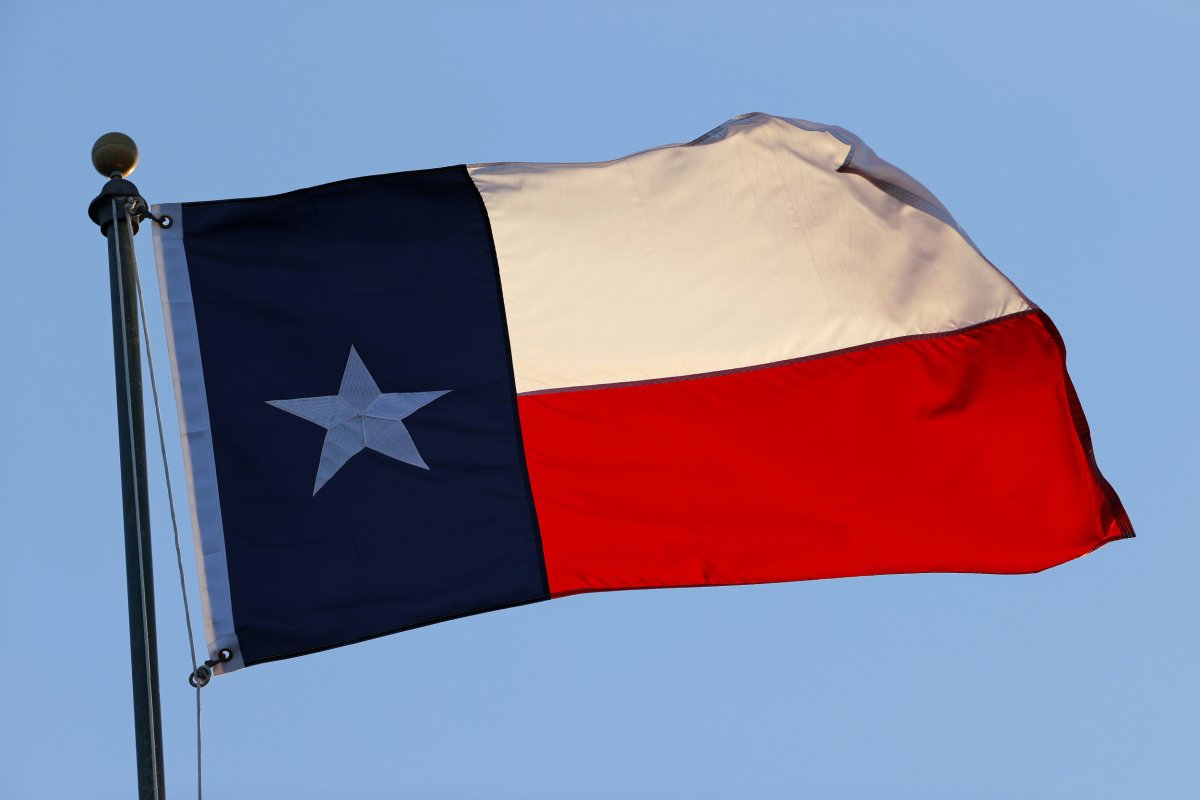A leading Texas independence campaigner has said the United States is "breaking apart," with over 50 percent of the population in 25 states ready to secede based on his interpretation of two recent surveys by the polling company YouGov.
The claim was made by Daniel Miller, the president of the pro-independence Texas Nationalist Movement, in the most recent edition of his Texas News podcast.
Questions about the integrity of the U.S. have increased in the face of fiercely partisan politics in Congress and the contested 2020 presidential election. In February 2023, House Republican Marjorie Taylor Greene sparked controversy after calling for a "national divorce" between "red states and blue states."
Between February 2 and 5, YouGov asked 35,000 Americans whether they would support their state seceding from the union and becoming an independent nation. The results varied considerably—from highs of 36 percent in Alaska, 31 percent in Texas and 29 percent in California to a low of 13 percent in Minnesota. Across the U.S., the survey found that 23 percent of Americans wanted their state to become independent, with 51 percent opposed and 27 percent unsure.

Miller argued that in the survey, support for independence was lower than it should be because "polling companies have no idea how to poll the issue of secession or withdrawing from the union."
To support this argument, Miller referenced a separate YouGov survey conducted in February for the Independent California Institute.
The survey of 500 Californian adults found that 58 percent believed Californians "would be better off than they are now in a scenario where California peacefully becomes an independent country with a friendly relationship with the U.S."
Miller said the question more accurately calculated support for secession, as it specified that it would be peaceful and focused on whether individuals thought they would personally be better off.
Miller said there was a 29-point difference between the two surveys—with 29 percent of Californians saying they would support independence in the first, while 58 percent said independence would make them better off in the second.
Rounding this figure to 30 percent, then extrapolating it across the U.S., Miller concluded that in 25 states the independence campaign would win a hypothetical independence referendum. An analysis by Newsweek found that there were 23 states in which you could produce a majority for independence if you added 30 percent to the figure supporting independence in the initial YouGov poll.
Newsweek does not endorse these figures, and the 29 percent discrepancy between the two Californian figures can be explained by any number of factors, which means it cannot be extrapolated across the nation. Moreover, the second California poll was on whether residents thought independence would make them better off, not on whether they supported it.
In his podcast, Miller added: "The United States is breaking apart. Some people think that Texas is the only state with one foot out the door, but there are actually other states where support for secession is surging and ready to hit the tipping point."
"The United States is flying apart," he continued. "States are ready to withdraw and in larger numbers than I think the public is generally aware."
Speaking to Newsweek, Professor Matt Qvortrup, a political scientist and the author of I Want to Break Free: A Practical Guide to Making a New Country, argued that support for independence often increased during referendum campaigns.
He said: "In independence referendums, you often see that those who want to secede win over the campaign. In Scotland, the SNP (the Scottish National Party) came from 29 percent at the beginning of the campaign and ended on 45 percent.
"In Catalonia, Quebec, and in Scotland, support for independence was in the twenties when the issue was first discussed. This has in all cases moved within touching distance of independence."
Uncommon Knowledge
Newsweek is committed to challenging conventional wisdom and finding connections in the search for common ground.
Newsweek is committed to challenging conventional wisdom and finding connections in the search for common ground.
fairness meter
To Rate This Article
About the writer
James Bickerton is a Newsweek U.S. News reporter based in London, U.K. His focus is covering U.S. politics and world ... Read more
To read how Newsweek uses AI as a newsroom tool, Click here.








